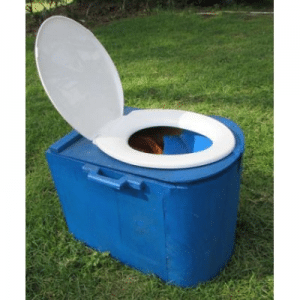
Agriculture
January 22, 2024
Blue Box Toilet and Sanivation Container-Based Sanitation (CBS) Waste Collection Service
Read SolutionImplemented by
Sanivation
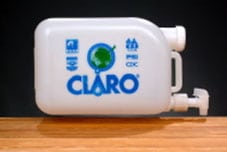
Updated on January 10, 2024
·Created on July 11, 2016
The CDC SWS Container is a modified jerry designed for safe water storage in households.
The CDC SWS Container is a 20-liter modified jerrycan with an integrated tap and handle for carrying water for household use. This container was designed as part of the CDC’s Safe Water System (SWS) Program to promote the safe handling and storing of drinking water.
Target SDGs
SDG 6: Clean Water and Sanitation
SDG 3: Good Health and Well-Being
Market Suggested Retail Price
$5.00
Target Users (Target Impact Group)
Household
Distributors / Implementing Organizations
The CDC (Centers for Disease Control and Prevention) organizes the distribution of this product.
Competitive Landscape
Direct competitors include Aquatainer 10L Collapsible and Oxfam Bucket.
Regions
Africa, Asia
Manufacturing/Building Method
This product is manufactured in Uganda, Afghanistan, Kenya, and the United States through partners of the CDC (Centers for Disease Control and Prevention).
Intellectural Property Type
Trademark
User Provision Model
This product is provided through the CDC’s Safe Water Storage program.
Distributions to Date Status
As of 2013, Safe Water System (SWS) programs utilizing these containers have been implemented in over 35 countries around the world.
Container volume (L)
20 L
Integrated dispensing tap (yes/no)
Yes
Handle for carrying (yes/no)
Yes
Material
Plastic
Design Specifications
The CDC SWS Container is a 20-liter modified jerrycan with an integrated tap and handle.
CDC SWS container has a small opening with a lid or cover which is 3 inches in diameter with a screw-on lid. It has a sturdy screw-on spigot or small opening to allow easy and safe access to the water.
Technical Support
Technical support is provided by the CDC.
Replacement Components
None
Lifecycle
Unknown
Manufacturer Specified Performance Parameters
Intended to be a form of Safe Water Storage.
Vetted Performance Status
This product is recommended by the CDC and has been analyzed in the field.
Safety
The product is safe to use.
Complementary Technical Systems
None
Academic Research and References
N. Potgieter, P. J. Becker, and M. M. Ehlers, “Evaluation of the CDC safe water-storage intervention to improve the microbiological quality of point-of-use drinking water in rural communities in South Africa,” Water S. A., vol. 35, no. 4, pp. 505–516, 2009.
CDC, “Centers for Disease Control and Prevention,” Centers for Disease Control and Prevention, 25-Oct-2023. Available: https://www.cdc.gov/index.htm
“Goal 6,” Sdgs.un.org. Available: https://sdgs.un.org/goals/goal6
DC, “Global Water, Sanitation, & Hygiene (WASH),” Centers for Disease Control and Prevention, 01-Mar-2023. Available: https://www.cdc.gov/healthywater/global/index.html
“Safe Water Storage,” Cdc.gov, 15-Nov-2022. Available: https://www.cdc.gov/healthywater/global/safe-water-storage.html
“Household Water Treatment,” Centers for Disease Control and Prevention, 20-Oct-2022. Available: https://www.cdc.gov/healthywater/global/household-water-treatment.html?CDC_AA_refVal=https%3A%2F%2Fwww.cdc.gov%2Fsafewater%2Fstorage.html
“This Content Has Moved,” Cdc.gov. Available: https://www.cdc.gov/safewater/pdf/sws-overview-factsheet508c.pdf
Other information, “Publications, Data, & Statistics,” 15-Nov-2022. Available: https://www.cdc.gov/healthywater/global/wash_publications.html?CDC_AA_refVal=https%3A%2F%2Fwww.cdc.gov%2Fsafewater%2Fprograms-projects.html
Compliance with regulations
None
Evaluation methods
Standard methods were used to determine the presence total coliforms, faecal coliforms, Escherichia coli, faecal enterococci, Clostridium perfringens, male-specific F-RNA and somatic coliphages in the water samples. Statistically, the CDC SWS container performed no better than a traditional plastic container.
Other Information
CDC SWS programs and projects
CDC SWS field stories
Academic articles related to common safe water storage containers:
“Household drinking water in developing countries: a systematic review of microbiological contamination between source and point-of-use” by Jim Wright, Stephen Gundry, and Ronan Conroy
“Household water treatment and safe storage options in developing countries: A review of current implementation practices” by Daniele S. Lantagne, Robert Quick, and Eric D. Mintz

Agriculture
January 22, 2024
Implemented by
Sanivation
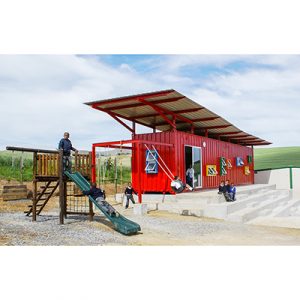
Agriculture
March 11, 2024
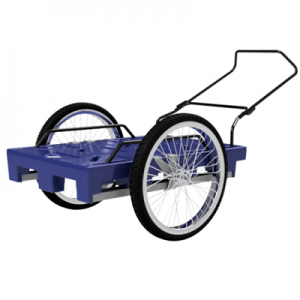
Agriculture
June 23, 2024
Implemented by
LoooP Creative Ltd
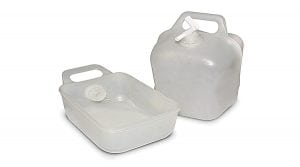
Agriculture
January 10, 2024
Implemented by
NRSRelief
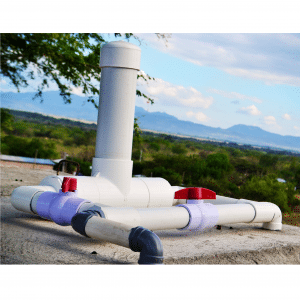
Agriculture
January 2, 2024
Implemented by
Bountifield
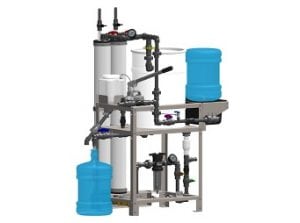
Agriculture
January 8, 2024
Implemented by
Healing Waters International

Agriculture
January 3, 2024
Implemented by
Department of Civil and Environmental Engineering, University of Virginia
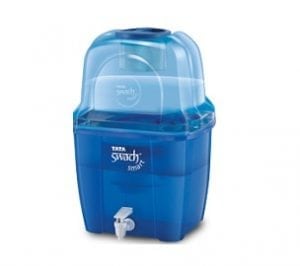
Agriculture
January 5, 2024
Implemented by
TATA Swach
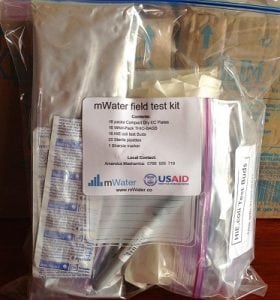
Agriculture
January 17, 2024
Implemented by
mWater
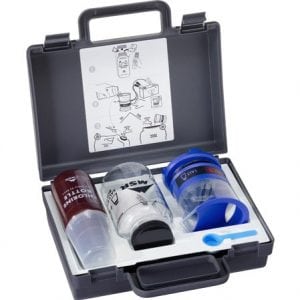
Agriculture
January 3, 2024
Implemented by
Cascade Designers, Inc
Have thoughts on how we can improve?
Give Us Feedback
Combining sales with education of customers is a very good approach.
Regarding IP: Converting banana fibers to absorbent fluff and using it in napkins is known in the art and practiced in other operations (e.g. SHE’s go! pads). US 8,936,697 is a granted US patent that discloses the application. Saathi’s approach could be difficult to patent and a patent would be difficult to enforce.